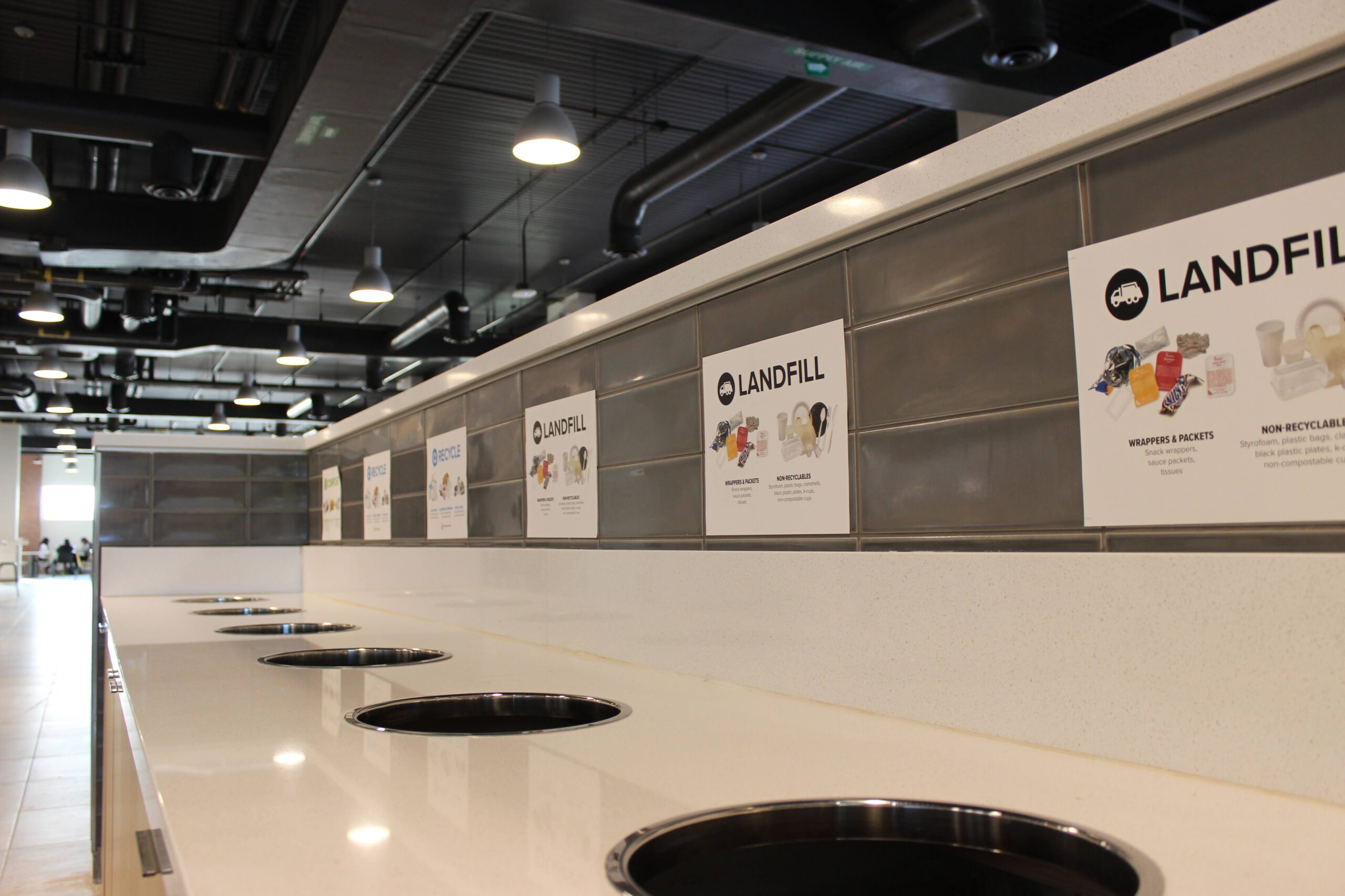
Sustainability Office launches searchable waste disposal directory to improve on-campus recycling, composting
By: Gabriel Donahue, deputy news editor
The Office of Sustainability launched a searchable online waste directory that will tell users the most sustainable way to dispose of materials on Nov. 15.
The widget, known as “Know Before You Throw” details methods of disposal that are specific to Towson’s on-campus waste management abilities. While landfill, recycle and compost are the three options users may anticipate, the widget will also suggest donating as the best method of getting rid of an item.
Search results may encourage users to pass items on to fellow Towson students by donating to the FoodShare or to move-out donation drives. Others will offer a directory of donation sites in Baltimore County and what materials they accept.
Meghan Bennett, a sustainability specialist who has headed the project since May, said the Office would be using the data from the widget to further their waste-minimizing efforts.
“We can see what items are being searched the most, so we can do some more targeted education if people are really confused by certain items,” Bennett said. “Or, if there’s an item that people are constantly searching, maybe we should consider removing that from a dining location if there’s a compostable or recyclable alternative.”
If TU doesn’t accept a certain material, the widget will offer off-campus resources where materials can be properly disposed of. If a material is not listed, users have the option to suggest it be added to the database.
The widget will cost the Office of Sustainability $2,000 annually, Assistant Director of Sustainability Paddy Watson said in an email.
ReCollect, the company that powers the software, says on its website that the Waste Wizard is designed to help “reduce contamination and wishcycling while changing recycling behavior.”
According to the University of Colorado Boulder’s Environmental Center, wishcycling is when one throws materials into the recycling bin with the hopes it is recyclable. Wishcycling is a harmful habit because it contaminates the waste stream.
When too much of one load of recycling or compost is contaminated by non-recyclables or non-compostable material, the entire load has to be trashed. Contamination can also refer to recyclable or compostable materials that are thrown into the trash can.
Implementing the widget is an effort to stop contamination at the source and help students make better decisions about what to do with waste.
As attempts to curb waste “before it’s even an issue for students,” Bennett said that university-sponsored events are set up to be zero-waste events, and most packaging at on-campus dining facilities is compostable. TU has a chapter of the Food Recovery Network, which gathers excess food from dining locations and redistributes it to local shelters.
“The more we can do before it gets to you standing in front of the trash can wondering what to do, the better,” Bennett said. “Part of my job is just peeking into the trash cans and seeing what’s in there, and there is a ton of contamination. You can’t blame people, because recycling and proper waste disposal is confusing.”
ABM, the company responsible for housekeeping at Towson, is working to manage contamination in an effort that is “progressing well,” Project Manager Lou Workmeister said in an email.
Simbarashe Dupwa, ABM’s zero waste manager, said he conducts weekly audits of trash, recycle and compost bins to inspect for contamination, Workmeister said. During these audits, which occur three to five times a week, Dupwa “removes the contamination, if he can safely do so, takes a pic and attempts to find the root cause of the problem.”
After evaluating the suspected cause, ABM will retrain housekeepers or suggest a retraining for food service staff. This procedure is a part of ABM’s GreenCare program which aims to provide “effective cleaning while maintaining and promoting an environmentally responsible janitorial maintenance plan.”
The University of Michigan is among the universities that already have a Waste Wizard.
“I think the metrics that the Waste Wizard provides are particularly useful,” UMichigan’s Office of Sustainability Program Manager Alison Richardson said in an email. “We consistently find that pizza boxes, batteries, and bottle caps are the top three search materials. We make sure to highlight these items in all of our ‘Where to Throw’ trainings on campus.”
Bennett said the Office of Sustainability will do more outreach for the widget in the spring semester, closer to the February Campus Race to Zero Waste competition.

